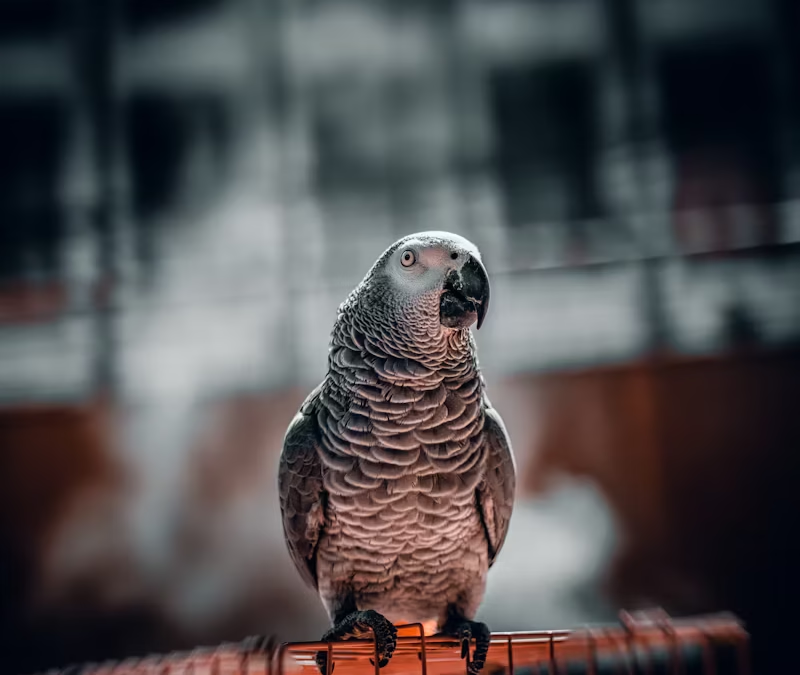Best food for African parrots
Best Food for African Grey Parrots: The Complete Guide to Nutrition
African Grey parrots are likely the smartest and most sensitive of all parrot species in the world. Their exceptional cognitive abilities, long lifespan, and emotional complexity make them sought-after pets. But with this uniqueness comes the need for specialized care—namely in the area of diet.
A balanced, nutritious diet is critical for your African Grey’s physical health, vibrant plumage, immune system, and cognitive function. In this guide, we’ll explain what makes the best food for African Grey parrots, what to avoid, and how to ensure they thrive through every stage of life.
Understanding the Nutritional Needs of African Grey Parrots
African Greys are prone to Vitamin A and calcium deficiencies and proper diet control is, therefore, extremely important. Their best diet should be obtained from a balanced combination of pellets, fresh fruits and vegetables, grains, and low seeds.
The overall diet content must be:
• 60-70% formulated pellets
• 20-25% fresh vegetables and fruits
• 5-10% nuts, grains, and healthy treats
Let us elaborate on each category in detail.
1. Formulated Pellets: The Base of an Equilibrium Diet
High-quality species-specific pellets should form the core of your African Grey’s diet. They are specially made to supply them with their daily needs of calcium, protein, vitamins, and trace minerals.
Benefits of pellets:
• Prevent selective feeding
• Provide reliable nutrients
• Reduce the likelihood of vitamin deficiency
Top pellet brands for African Greys:
• Harrison’s High Potency Coarse
• Roudybush Daily Maintenance
• TOP’s (Totally Organic Pellets)
• ZuPreem Natural or FruitBlend (moderately for finicky birds)
Avoid pellet foods with artificial colors, added sugar, or chemical preservatives.
2. Fresh Vegetables: The Daily Nutrition Boosters
African Greys live on a variety of raw, lightly steamed, or fresh veggies. They are rich in fiber, antioxidants, and essential vitamins.
Best vegetables for African Greys are:
• Kale, spinach, and Swiss chard (rich in calcium)
• Carrots and sweet potatoes (sources of Vitamin A)
• Broccoli, bell peppers, and green beans
• Zucchini, squash, and peas
Provide vegetables daily, well rinsed and chopped into bite-sized pieces. Rotate types to provide variety.
3. Fruits: Healthy and Tasty, but in Moderation
Fruits give natural sugars, water, and vitamins but need to be served in moderation since they are full of sugar.
Safe fruits for the African Greys include:
• Apples (seeds removed)
• Berries (blueberries, raspberries)
• Bananas
• Mango
• Papaya
• Melon
Limit fruit to 2–3 small portions per week and avoid dried fruits with added sugar.
4. Nuts and Seeds: Healthy Treats and Training Aids
While seeds are often called parrot food, a diet of solely seeds is nutritionally lacking and should be avoided. Utilize the nuts and seeds as treats or training aids instead.
Healthy options:
• Almonds (unsalted)
• Walnuts
• Pumpkin seeds
• Sunflower seeds (in moderation)
• Flaxseeds
These provide healthy fats and mental stimulation when being used as rewards.
5. Grains, Legumes, and Sprouts: Added Variety
Whole grains and cooked legumes can contribute protein, fiber, and B-vitamins to your parrot’s diet.
Healthy options are:
• Cooked oats, brown rice, and quinoa
• Lentils and chickpeas
• Sprouted seeds and mung beans
Serve grains plain, unseasoned, and switch frequently for diversity.
Foods to Avoid in African Grey Parrots
Some human foods and household products are toxic or unhealthy for parrots. Never feed your African Grey:
• Avocado
• Chocolate
• Alcohol
• Caffeine
• Onion and garlic
• Salty, sweet, or fried foods
• Apple seeds or fruit pits
• Milk products (they cannot digest lactose)
Always read labels and avoid packaged or processed foods.
Don’t Forget Fresh Water and Clean Dishes
There must always be fresh, clean water. Change it daily and wash food and water dishes well to prevent bacterial contamination.
How Diet Impacts Behavior and Health
African Greys are prone to calcium deficiency, leading to seizures, feather plucking, and softened bones. Poor nutrition can also lead to obesity, vitamin deficiency, or aggression or lethargy behavior.
Supplying your bird with a balanced, nutrient-rich diet encourages:
• Brain function and problem-solving ability
• Lustrous color and smooth molting of feathers
• Super immune system
.•Good social behavior and bonding
Conclusion: Feed with Love and Knowledge
Feeding your African Grey parrot is not simply feeding them chow—it’s about providing them with mental stimulation, long-term health, and emotional well-being. With a diet of balanced pellets, fresh vegetables and fruits, and occasional healthy treats, your parrot will be more loving, more lively, and simply happier.

